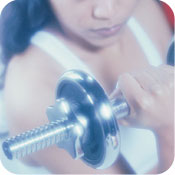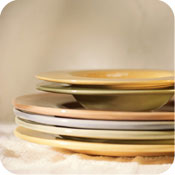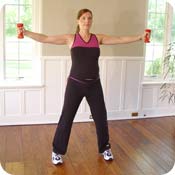 There are many benefits to exercising during your period. Working out can help:
There are many benefits to exercising during your period. Working out can help:
The following suggestions will help you develop a synergy between menstruation and exercise, so you can optimize your workouts, and your periods.
If you try all of the above suggestions and your periods are still painful, listen to your body. Take a few days off if you need to, or focus on non-pelvic body parts, like your biceps and triceps. If your period symptoms are so rough that they're hindering you from performing your daily activities, then you should see your women’s health care provider. Some women are concerned that if they exercise too much, their periods will stop altogether. If your periods are not regular, or seem to be fading away, see your doctor. But keep in mind that if you're not a vigorously-training athlete, exercise is probably not the cause of your cycle irregularity. Exercise-induced amenorrhea usually occurs in athletes who train vigorously, like long-distance runners (more than 30 miles a week), but it's thought to be triggered by the loss of body fat (fat cells are essential for hormone production), rather than exercise itself. Assuming that your menstrual irregularities are due to exercise might mean that other treatable causes get ignored. Amenorrhea can be dangerous to your overall health and warrants a visit to your women’s health care provider, as it can cause premature osteoporosis, infertility, and a higher risk of cardiovascular disease. What I hoped to convey to those fourth-grade kids is what I hope to convey to you: exercising during your period will not result in physical damage, and it is safe and beneficial (unless your physician advises against it). And more importantly, that your body is amazing! If you respect your body by understanding it, listening to it, and caring for it, it will serve you well for a lifetime. |
Exercise and Your Period
What You Need to Know to Go with the Flow
‹ Previous Page Page 2 of 2






Member Comments